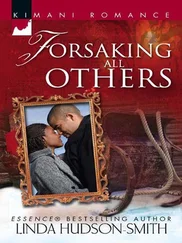My father, who has no doubt also read Heinlein, backed me up. I’ll take Heinlein over a headmistress any day. Eventually we ended up with a compromise in which I’ll surrender biology if I get to take all three of the others, which can be arranged with a little shuffling between classes. I’ll take chemistry with a different class, but I don’t care about that. It felt like enough of a victory for now, and I consented to be shown my dorm and meet my housemistress and “new friends.”
My father kissed my cheek when he said goodbye. I watched him out of the front door and saw him lighting a cigarette the second he was in the open air.
Friday 7th September 1979
It turns out to be a joke about the countryside.
Well, it is true in a way. Arlinghurst stands alone in its playing fields, surrounded by farmland. There isn’t an inch of land within twenty miles that someone isn’t using. There are cows, stupid ugly things, black and white like toy cows, not brown like the real cows we’d seen on holiday. (How now, brown cow? Nobody could talk to these.) They mill about in the fields until it is time for milking then they walk in a line into the farmyard. I figured it out this afternoon, when they let me take a walk around the grounds, that these cows are stupid. Bovine. I knew the word, but I hadn’t quite appreciated how literal it could be.
I come from the Welsh Valleys. There’s a reason they’re called “the Valleys.” They’re steep narrow glaciated valleys without much flat land at the bottom. There are valleys just like them all over Wales. Most of them have a church and a few farms, maybe a thousand people in the whole valley. That’s what they can naturally support. Our valley, the Cynon Valley, like its neighbours, has a population of more than a hundred thousand, all living in Victorian terraced houses, terraced up the hillsides like grapes, stuck together in rows with barely room between to hang out washing. The houses and the people are jammed together, like in a city, worse than a city, except that it isn’t a city. But away from those rows, it was wild. And even in them, you could always lift up your eyes.
You could lift up your eyes to the hills from whence cometh your help—a psalm that always seemed self-evident to me. The hills were beautiful, were green and had trees and sheep, and they were always there. They were wild, in the sense that anyone could go there at any time. They didn’t belong to anyone, unlike the flat farmed fenced-in countryside around the school. The hills were common land. And even down in the valleys there were rivers and woods and ruins, as the ironworks ceased to be used, as the industrial places were abandoned. The ruins sprouted plants, returned to the wild, then the fairies moved in. What we thought would happen with the Phurnacite really did happen. It just took a little longer than we’d imagined.
We spent our childhood playing in the ruins, sometimes alone and sometimes with other children or with the fairies. We didn’t realise what the ruins were, not for a long time. There was an old ironworks near Auntie Florrie’s house where we used to play all the time. There were other children there, and we’d play with them sometimes, wonderful games of hide and seek, chasing through. I didn’t know what an ironworks was. If pressed, I’d have worked out the etymology that someone must have once worked iron there, but nobody ever pressed me. It was a place, a thing. It was all over rosebay willow-herb in the autumn. It was unusual that we knew what it was.
Most of the ruins where we played, in the woods, didn’t have names and could have been anything. We called them witch’s cottage, giant’s castle, fairy palace, and we played that they were Hitler’s last redoubt or the walls of Angband, but they were really old crumbling relics of industry. The fairies hadn’t built them. They’d moved in with the green things after people had abandoned them. The fairies couldn’t make anything, not anything real. They couldn’t do anything. That’s why they needed us. We didn’t know that. There were a lot of things we didn’t know, that we didn’t think to ask. Before the people came I suppose the fairies would have lived in the trees and not had houses. The farmers would have put out milk for them, perhaps. There wouldn’t have been so many of them either.
The people had come to the Valleys, or rather their ancestors had, at the beginning of the Industrial Revolution. Under the hills there were iron and coal, and the Valleys were the boom towns of their day, filling up with people. If you’ve ever wondered why there wasn’t a Welsh immigration to the New World on the scale of the Irish or Scottish ones, it isn’t because the people didn’t need to leave their farms in the same way. It’s because they had somewhere of their own to go. Or at least, they thought it was their own. English people came too. The Welsh language lost out. Welsh was my grandmother’s first language, my mother’s second language and I can only fumble along in it. My grandmother’s family had come from west Wales, from Carmarthenshire. We still had relatives there, Mary-from-the-country and her people.
My ancestors came like everyone else, after iron was discovered, and coal. People started building smelters on the spot, railroads to take it out, houses for workers, more smelters, more mines, more houses, until the valleys were solid strips of habitation up and down. The hills were always there between, and the fairies must have huddled in the hills. Then the iron ran out, or was cheaper to produce somewhere else, and while there was still coal mining it was a pitiful remnant of the boom of a hundred years before. Iron works were abandoned. Pits closed down. Some of the people left, but most stayed. It was home by then. By the time we were born, chronic unemployment was a fact of life and the fairies had crept back down into the valleys and taken over the ruins that nobody wanted.
We grew up playing freely in the ruins and had no real sense of this history. It was a wonderful place for children. It was abandoned and grown over and ignored, and once you slipped away from the houses it was wild. You could always go up the mountain into real countryside, which had rocks and trees and sheep, grey-coated from coal dust and unappealing. (I can’t understand how people are sentimental about sheep. We used to shout “Mint sauce!” at them to get them to run away. Auntie Teg always winced at that and told us not to, but we kept on doing it. They’d come down into the valley and knock over dustbins and destroy gardens. They were the reason you had to keep gates shut.) But even down in the valley, running through everything were the seams of trees and ruins. They were everywhere, through and under and parallel to the town. It wasn’t the only landscape we knew. We went to Pembrokeshire on holiday, and up to the real mountains, the Brecon Beacons, and to Cardiff, which is a city, with city shops. The Valleys were home, they were the landscape of normality, and we never questioned it.
The fairies never said they built the ruins. I doubt we asked, but if we had they’d just have laughed, as they did at most of our questions. They were just inexplicably there or, some days, inexplicably not there. Sometimes they would talk to us, and other times flee from us. Like the other children we knew, we could play with them or without them. All we really needed was each other and our imagination.
The places of my childhood were linked by magical pathways, ones almost no adults used. They had roads, we had these. They were for walking, they were different and extra, wider than a path but not big enough for cars, sometimes parallel to the real roads and sometimes cutting from nowhere to nowhere, from an elven ruin to the labyrinth of Minos. We gave them names but we knew unquestioningly that the real name for them was “dramroads.” I never turned that word over in my mouth and saw it for what it was: Tram road. Welsh mutates initial consonants. Actually all languages do, but most of them take centuries, while Welsh does it while your mouth is still open. Tram to dram, of course. Once there had been trams running on rails up those dramroads, trams full of iron ore or coal. So empty and leaf-strewn, used by nobody but children and fairies, they’d once been little railroads.
Читать дальше
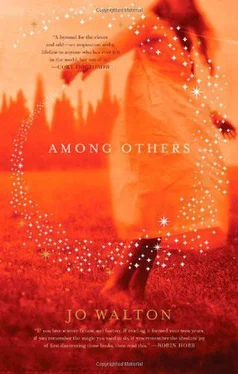


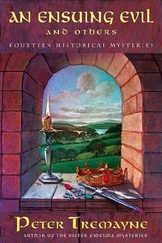
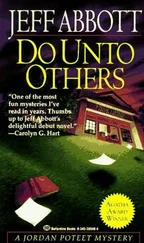
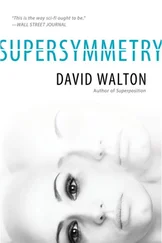

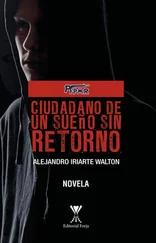


![Brian Thompson - A Monkey Among Crocodiles - The Life, Loves and Lawsuits of Mrs Georgina Weldon – a disastrous Victorian [Text only]](/books/704922/brian-thompson-a-monkey-among-crocodiles-the-life-thumb.webp)
